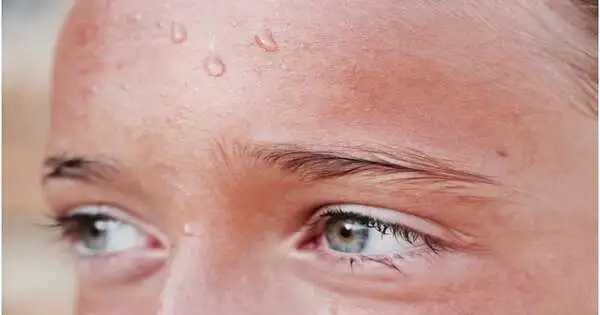It has been demonstrated by a group of European researchers that the inhalation of human odors, which are derived from the sweat of other people, may aid in the treatment of some mental health issues.
In a preliminary study, the researchers were able to demonstrate that mindfulness therapy combined with human “chemo-signals,” or body odor, obtained from volunteers’ underarm sweat, decreased social anxiety in patients. “Our state of mind causes us to produce molecules (or chemo-signals) in sweat that communicate our emotional state and produce corresponding responses in the receivers,” lead researcher Ms. Elisa Vigna of the Karolinska Institute in Stockholm stated when presenting the results of a pilot study at the European Congress of Psychiatry in Paris. Our preliminary research indicates that the combination of these chemo-signals and mindfulness therapy appears to be more effective than mindfulness therapy on its own in treating social anxiety.
A common mental health condition in which people worry too much about participating in social situations is called social anxiety. This can have an impact not only on interactions at work or in relationships, but also on everyday events like shopping or celebrating a holiday. Because of this, it might be hard to live a normal life without worrying too much about having contact with other people.
“We applaud this work, which focuses on one of the least studied senses and its relationship to mental health. The findings are intriguing, but they must be rigorously replicated by independent researchers.”
Dr. Julian Beezhold (University of East Anglia, Secretary General of the European Psychiatric Association)
During the course of the study, patients who were being treated for social anxiety were subjected to chemosignals derived from sweat samples taken from volunteers. Volunteers were asked to give samples of their sweat while they were watching short movies. These movies were chosen to elicit specific feelings, like fear or happiness. This was done to see if the treatment was affected differently by the specific emotions that were felt while sweating. The content from horror films like The Grudge was included in the clips from scary movies. Content from Sister Act, Mr. Bean’s Holiday, and other films was included in the “happy” clips.
After the sweat was collected, 48 women between the ages of 15 and 35 with social anxiety were recruited and divided into three groups of 16 people each. Over the course of two days, they all received treatment for social nervousness. In addition to a control group that was exposed to clean air, each group was simultaneously subjected to a distinct odor that was derived from the sweat samples of individuals who had viewed a variety of video clips.
According to Elisa Vigna, “We found that the women in the group who were exposed to sweat from people who had been watching movies that were funny or scary responded better to mindfulness therapy than the women who were not exposed to sweat.” We were somewhat surprised to discover that the treatment outcomes did not differ based on the person’s emotional state; sweat produced by someone who was happy had the same effect as sweat produced by someone who had been scared by a movie clip. Therefore, the response to treatment may be affected by something about human chemosignals in sweat in general.
This effect may be caused by simply being in someone else’s presence, but we need to verify this. In fact, we are testing that in a follow-up study with a similar design and sweat from viewers of emotionally neutral documentaries. We should be able to determine if the benefits of therapy stem from the unconscious perception of specific emotional signals or simply from human presence, regardless of emotion.”
“We found that people who undertook one treatment session of mindfulness therapy while being exposed to human body odors showed approximately 39% reductions in anxiety scores,” Ms. Vigna went on to say. For comparison, we observed a 17% decrease in anxiety scores after one treatment session in the control group, which received only mindfulness training.
We are hopeful that this will result in a novel approach to assisting individuals who suffer from social anxiety disorder, such as increasing the efficiency of stand-alone e-health interventions like meditation apps or providing an additional opportunity to those who do not respond to the treatment they are currently receiving. However, we caution that this is a proof-of-concept study, and as a result, we are now beginning a larger investigation to verify the findings.
The way information is carried by human sweat is complicated and varies. Together with analysts at the University of Pisa, the researchers have identified over 300 distinct compounds in human sweat. The researchers hope that therapeutic use will become simpler if they are able to identify and isolate the molecules that are causing the effects observed in the study. This work is essential for the EU-subsidized Horizon 2020 project Elixir (“Advancing Social Connection through Close to Home Personal Stinches”) 4.
“We welcome this study, looking at one of the least researched senses and its interaction with mental health,” said Dr. Julian Beezhold, Secretary General of the European Psychiatric Association. Although the findings are intriguing, independent researchers will need to thoroughly replicate them. ” This work did not involve Dr. Beezhold.
Paris will host the 2023 European Congress of Psychiatry from March 25 to March 28.
More information: epa-congress.org/





